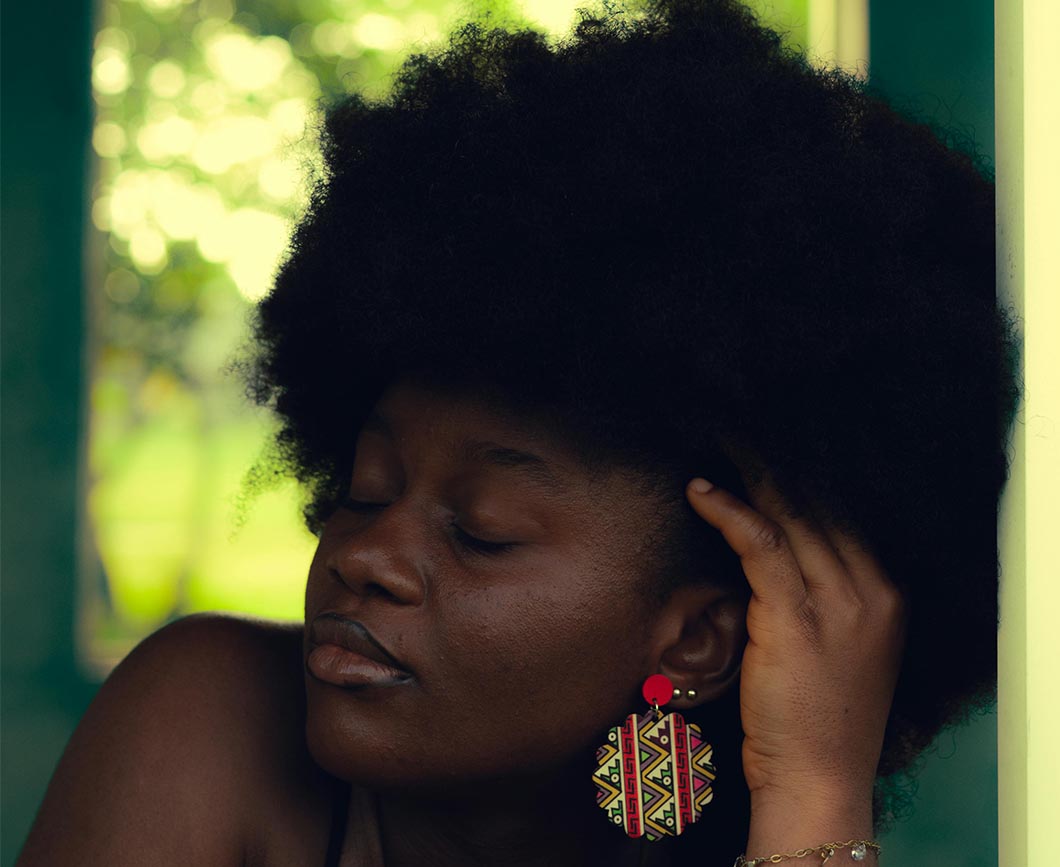Facts about Vitamin D and Hair Health
There is a direct link between healthy hair and optimal Vitamin D levels.
By the same token, if you have low Vitamin D levels, then the health (and look) of your hair will sufer.
This means that there are no pills, hair products, hair regime or nutrition that can improve hair loss, unless you address any underlying Vitamin D issues. In a nutshell, if you want to have healthy, thick hair, you need to make sure that these levels are optimal.
We unpack all things Vitamin D by discussing the following:-
*Pssst, for a comprehensive list of all the natural hair Vitamins to improve the health of your hair, check out our 13 Essential Hair Growth Vitamins and their Food List.
1. What is a major souce of Vitamin D?
Your body makes most of its Vitamin D from sunlight.
The UV rays in sunlight are converted into Vitamin D by your skin, which is why you need enough sun exposure for healthy levels.
2. Who are at risk for low Vitamin D levels?
People at risk for lower Vitamin D levels are:-
🌺 Infants;
🌺 people with darker skin tone;
🌺 People with underlying health conditions that impact the production and /or absorption of Vitamin D;
🌺 disabled / ill people who are not able to get enough sun exposure; and
🌺people who live at northern latitudes during winter.
3. Why are people with darker skin tone more prone to low Vitamin D production?
 Darker skin contains more melanin – this is a pigment that naturally filters ultraviolet (UV) radiation.
Darker skin contains more melanin – this is a pigment that naturally filters ultraviolet (UV) radiation.
Because of this ‘natural sunscreen’, less UV light is absorbed by darker skinned people compared to lighter skin.
Therefore, individuals with darker skin generally need more time in the sun to produce sufficient Vitamin D. They also suffer from Vitamin D deficiency when they move to countries with less sunlight.
4. What variables affect the ability to produce Vitamin D?
One’s ability to make Vitamin D is affected by:-
🌺 Skin tone;
🌺 Location;
🌺 Age;
🌺 Season of the year; and
🌺 The time of sun exposure.
5. How many minutes of sun exposure do you need a day?
This depends on the time of the year.
When the weather is warmer, like in spring and summer, you don’t need as much time in the sun compared to the colder months of autumn and winter, when sunlight is less available.
Also, because we often wear less clothing in warmer seasons, a larger area of our skin is exposed to the sun’s rays, affecting how long we need to be outdoors.
Therefore In summer, typically 8 to 10 minutes of daily sun exposure at noon is adequate for producing the recomended amount of Vitamin D. In winter, atleast 60 – 90 minutes of sun exposure at noon is needed (due to wearing more layers of clothes, hence less sun exposure).
Looking for a nourishing hair spray for your hair. Try out our DIY Green Tea Scalp Spray for Natural Hair.
6. Do you need to get sun exposure every single day?
 Ideally, yes – but sometimes daily sun exposure is not practical.
Ideally, yes – but sometimes daily sun exposure is not practical.
However, when you can, one should take the opportunity to bask in the sun.
7. Does applying sunscreen affect your body’s ability to produce Vitamin D?
Yes, sunccreen acts as a barrier fto the sun’s rays and so applying sunscreen will affect your skin’s ability to absorb the UV rays.
This is dependent on how much suncreen has been applied (the thickness), as well as its SPF level.
8. Can your body store Vitamin D?
Yes,the fat cells in our bodies store Vitamin D and it can do so for months.
To even it out, especially in cold countries, make sure you get the most of the sun on warmer days.
9. What is the link between healthy hair and Vitamin D levels?
One of the symptoms of Vitamin D deficiency is hair loss, and so low levels can contribute to thinning, shed hair.
It is therefore a no-brainer to take care of these vitamin levels inorder to have healthy hair.
Learn more about Vitamin D & Healthy Natural Hair.
Are you struggling with hair loss due to low Vitamin D levels. How often do you check your levels in order to maintain your overall health (and the health of your hair)?
Sound off in the comments below, and let’s hear your take on this essential vitamin for healthy hair.

